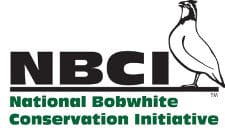USA – -(Ammoland.com)- To assist land managers in controlling of one of the most invasive, problematic, exotic weeds in northern bobwhite range, the National Bobwhite Conservation Initiative (NBCI) has released a new 8-minute video, An Integrated Approach to Sericea Lespedeza Management … and just in time to begin control treatments this year.
A native of Asia, sericea lespedeza was introduced for erosion control, mine reclamation and wildlife habitat in the late 1800s. There are beneficial native lespedezas and other exotic lespedeza species.
The low-growing, herbaceous lespedezas are popular for forage and wildlife, but the tall, upright shrub-type are problematic, and none as invasive as sericea. With the ability for uncontrolled populations to increase up to 24% annually, sericea lespedeza poses a serious threat to wildlife habitat and native ecosystems.
“For all practical purposes, sericea is impossible to eliminate,” said NBCI Grasslands Coordinator Jef Hodges.
“It thrives under common wildland management practices. It’s a perennial and is allelopathic, which means it creates a chemical barrier to other plants. Its hard seeds will last decades in the soil, but they provide little nourishment to wildlife. In 2003, it infested an estimated 8.3 million acres, so it’s a threat to cattle producers as well as wildlife managers. It can’t be totally eliminated but it can be controlled with an integrated approach of burning/grazing/mowing and herbicide application for the most severe infestations,” said Hodges.
The video is available for viewing at https://www.youtube.com/watch?v=jttBd6b4Ap8.
 About National Bobwhite Conservation Initiative
About National Bobwhite Conservation Initiative
Headquartered at the University of Tennessee’s Institute of Agriculture/Department of Forestry, Wildlife and Fisheries, NBCI is a science and habitat-based initiative of the National Bobwhite Technical Committee (NBTC) to elevate bobwhite quail recovery from an individual state-by-state proposition to a coordinated, range-wide leadership endeavor to restore wild bobwhites on a landscape scale. The committee is comprised of representatives of 25 state wildlife agencies, various academic research institutions and private conservation organizations. Support for NBCI is provided by the Federal Aid in Wildlife Restoration Program, state wildlife agencies, the Joe Crafton Family Endowment for Quail Initiatives, the University of Tennessee, Quail & Upland Game Alliance, Park Cities Quail and Roundstone Native Seed.
